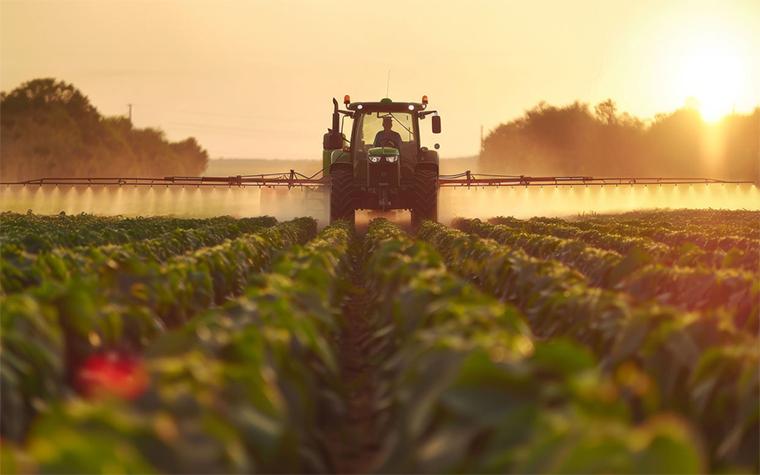
Register for the Missouri Crop Management Conference
Registration is open for the state’s premier agricultural conference for farmers and ag industry professionals, the Missouri Crop Management Conference, Dec. 9-10 in Columbia.
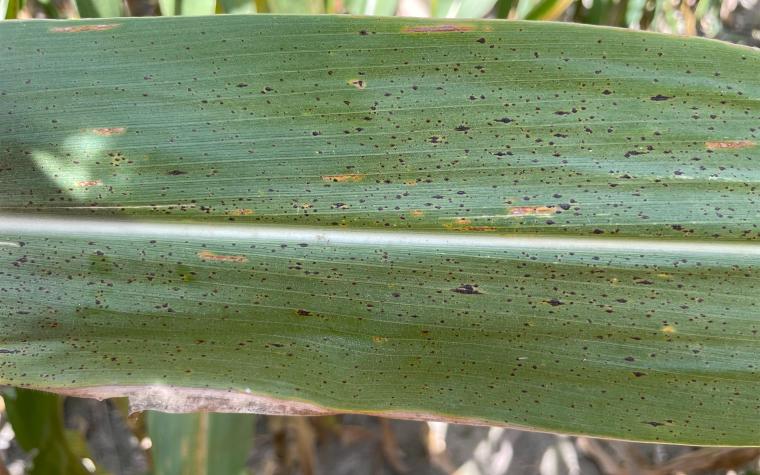
Scout deep into fields for tar spot
Good scouting is the best way to identify tar spot in corn, says University of Missouri Extension state plant pathologist Mandy Bish. Tar spot was confirmed in June of 2023 and 2024 in Missouri, which is earlier than in previous years, when the disease showed up in August or September. This earlier appearance is likely to continue because Missouri’s spring air temperatures are favorable for the disease, says Bish.
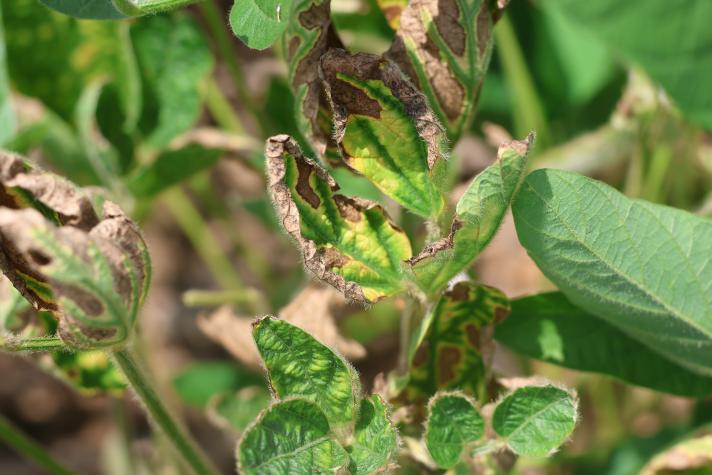
Red crown rot: No cure for this soybean disease
Red crown rot in soybeans has no cure. Manage spread with crop rotation, drainage, and equipment sanitation.
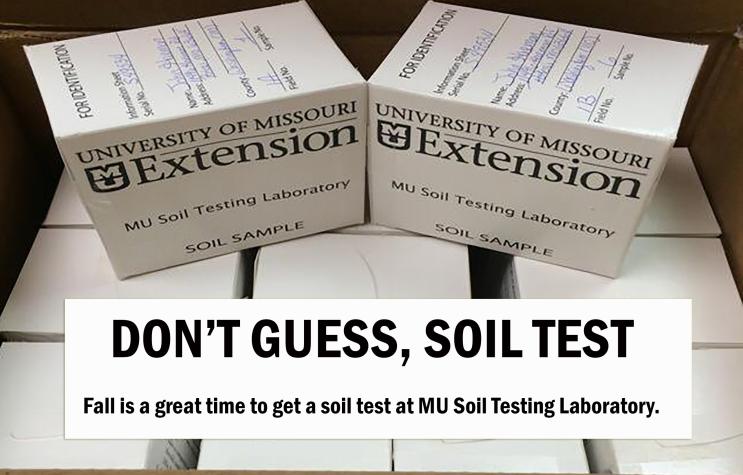
Gardeners can save money, trouble with fall soil test
COLUMBIA, Mo. – If a little is good, a lot must be better. That’s often the approach home gardeners take when plants and flowers don’t do well, says University of Missouri Extension soil scientist Manjula Nathan. But adding more fertilizer and topsoil without testing the soil may be a waste of money. It also can be bad for the environment because excess nutrients often leach into water supplies.
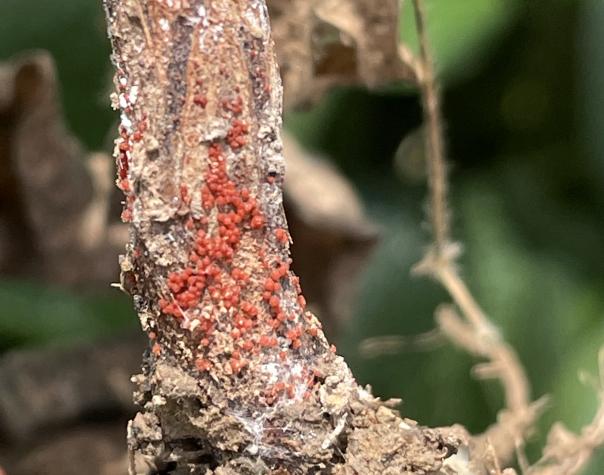
First case of red crown rot confirmed in Missouri
COLUMBIA, Mo. – University of Missouri Extension state plant pathologist Mandy Bish reports confirmation of red crown rot, a yield-robbing soybean disease, in Marion County in northeastern Missouri. This is the first confirmed incidence of the disease in the state. Bish says MU Extension specialists have been scouting for the pathogen since its confirmation in Illinois in 2018.
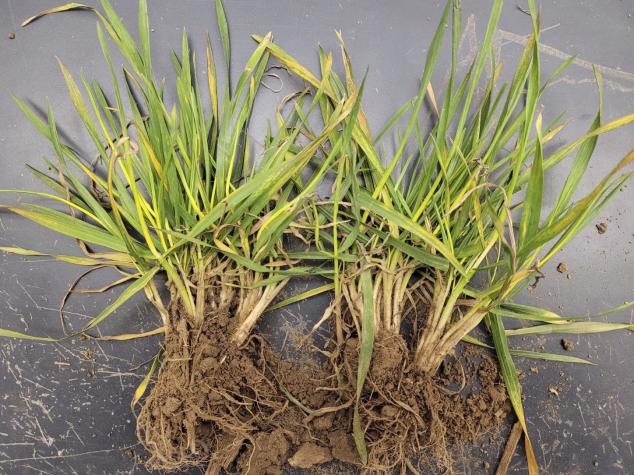
MU Plant Diagnostic Clinic offers free wheat virus tests
Free wheat virus screenings available this spring to help growers assess disease severity and prepare for future control measures.
Great landscapes begin with quality topsoil
Ensure healthy lawns and gardens by choosing topsoil with the right texture, pH, and organic matter for optimal plant growth.
Managing potassium and phosphorus when prices are high
COLUMBIA, Mo. – Farmers understand fertilizer prices fluctuate with time. “We are living through a substantial shift in potassium and phosphorus prices, from low prices in the 2020 growing season to the highest prices in the past decade for fertilizer purchased now for the 2022 growing season,” says John Lory, University of Missouri Extension nutrient management specialist.
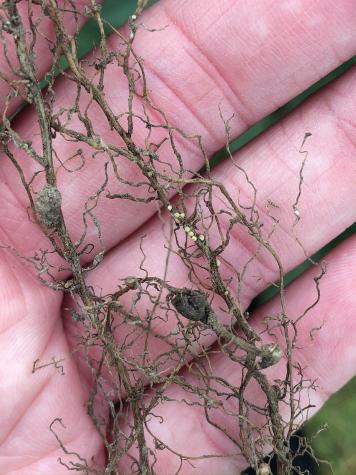
Test for SCN after soybean harvest
Missouri farmers can submit two free soybean cyst nematode tests after harvest to monitor and manage this costly pest.
MU Soil and Plant Testing Lab still open and serving Missouri agriculture
COLUMBIA, Mo. – For now, the University of Missouri Soil and Plant Testing Laboratory remains open. “We understand the essential role the lab plays in supporting Missouri's agricultural industry,” said Robert Kallenbach, MU Extension senior program director for agriculture and environment. “If we can continue to operate safely, the MU Soil Testing Laboratory in Columbia will continue to accept samples.”
Mulch ado about something
Mulch conserves moisture, suppresses weeds, and enriches soil. Use 2–4 inches of organic mulch like pine bark or grass clippings for best results.
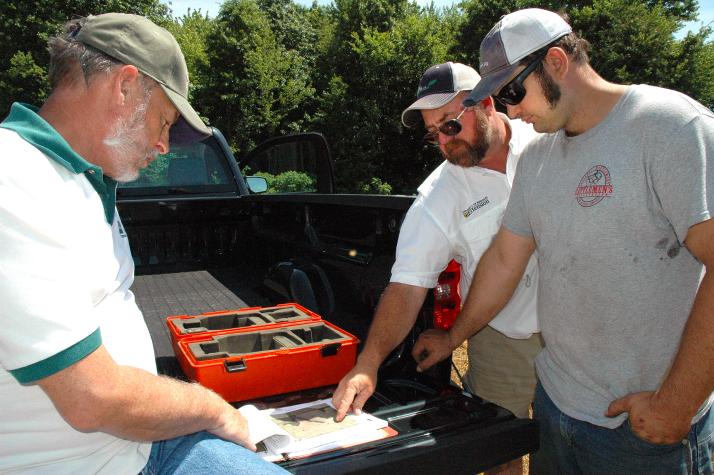
MU Extension, NRCS partner to help farmers convert cropland to pasture
Farmers get guidance and cost-share help to convert cropland to pasture using rotational grazing and conservation practices.
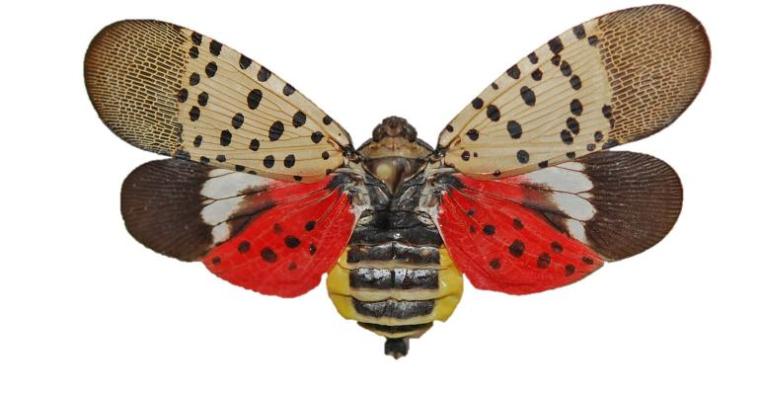
Hitchhiking spotted lanternfly could become problem in Missouri
COLUMBIA, Mo. – An exotic pest that hitchhikes on train cars, trucks and boats could suck the life out Missouri crops. Spotted lanternfly has the potential to establish populations in Missouri, says University of Missouri Extension field crop entomologist Kevin Rice. It damages soybean, corn and hops, as well as fruit and ornamental trees. According to MU Extension viticulturist Dean Volenberg, it could have damaging effects on…
Frost-seed legumes now to improve cattle and pastures
STOCKTON, Mo. – Add legumes to grazing pastures to improve cow performance, soil health and forage production, says Patrick Davis, University of Missouri Extension livestock specialist in Cedar County.
Second annual Mid-Mo Expo set for backyard gardeners, small farmers
COLUMBIA, Mo. – The second annual Mid-Mo Expo for backyard gardeners and small farmers offers presentations and demonstrations to improve productivity and profits.The event will be 9 a.m. to 3 p.m. Saturday, Feb. 24, at Battle High School, 7575 E. St. Charles Road, Columbia. University of Missouri Extension in Boone County hosts the event.
Is there clover in there?
Learn why legumes like clover improve forage, boost nitrogen, balance pH, and support soil test recommendations.
Ashes to ashes
COLUMBIA, Mo. – Ashes produced by wood-burning fireplaces or stoves are an excellent example of the idiom “don’t throw out the baby with the bathwater,” says University of Missouri Extension horticulturist David Trinklein.“When collected and spread on the garden, they are an excellent and free source of calcium and other plant nutrients,” Trinklein says.
Soil testing kits available at local MU Extension centers
COLUMBIA, Mo. – Submitting soil samples to your local University of Missouri Extension center is easy, says Manjula Nathan, director of the MU Soil and Plant Testing Laboratory. Now is the best time of the year to submit samples to the accredited lab. Soil tests help farmers, gardeners and lawn owners find what fertilizers they may or may not need, says Nathan.
Carefully select topsoil when doing fall yard work
COLUMBIA, Mo. – Not all topsoil is created equal.

Inexpensive soil tests can save farmers thousands
COLUMBIA, Mo. – Soil tests can save farmers thousands of dollars, says Manjula Nathan, director of the University of Missouri Soil and Plant Testing Laboratory. Too often, farmers follow routine fertilization schedules and end up applying too much fertilizer to fields, Nathan said. A simple soil test gives the farmer accurate information to guide nutrient management decisions.
